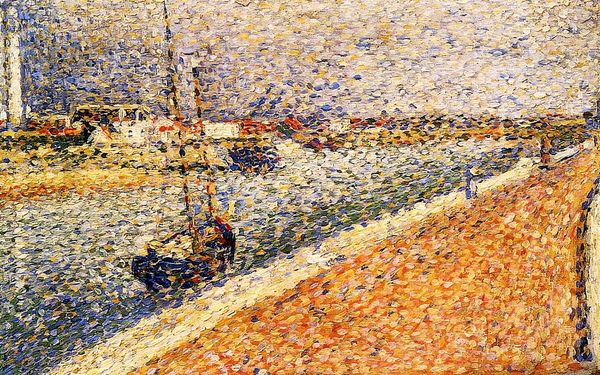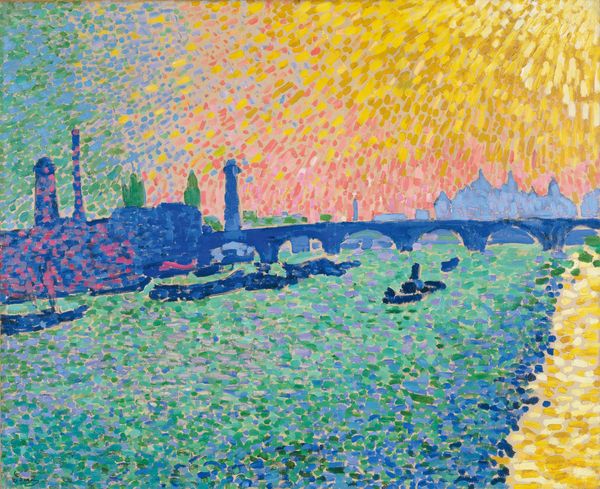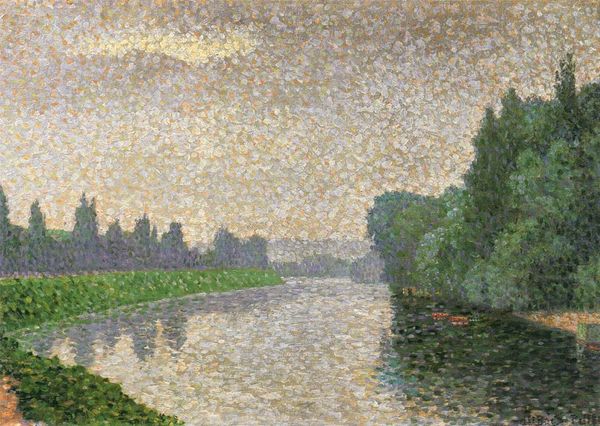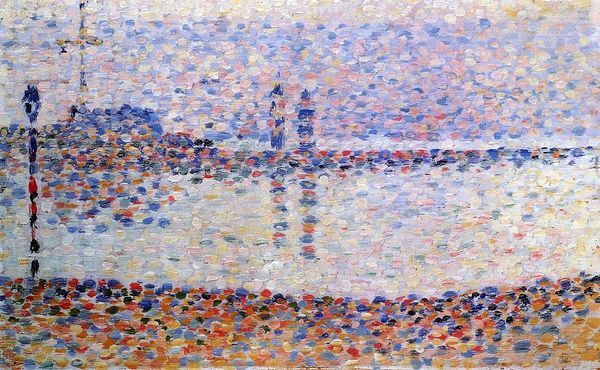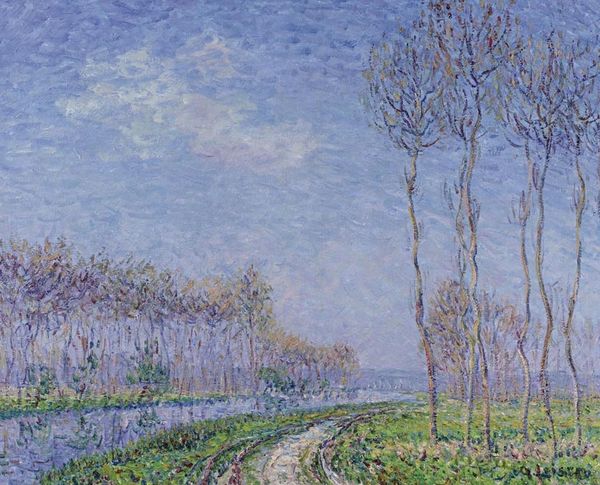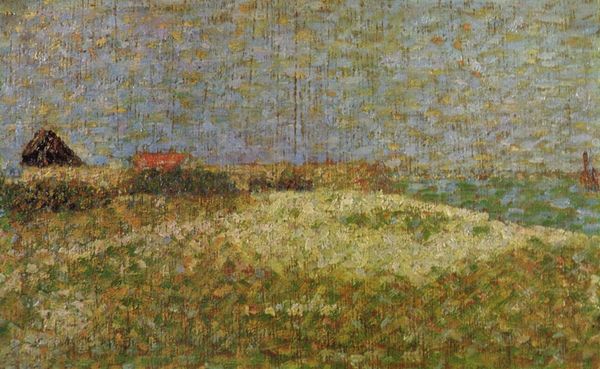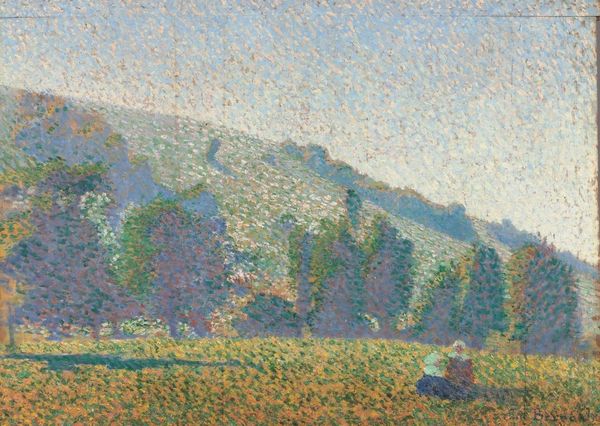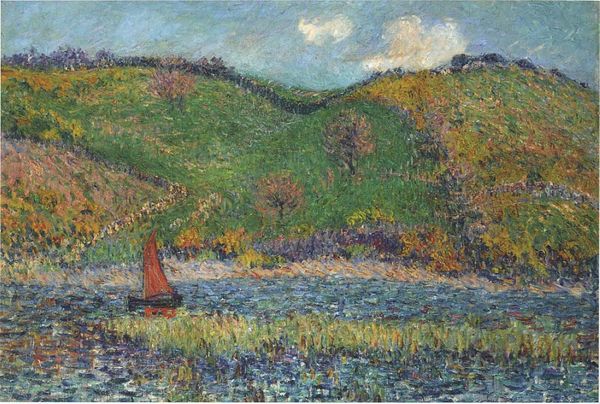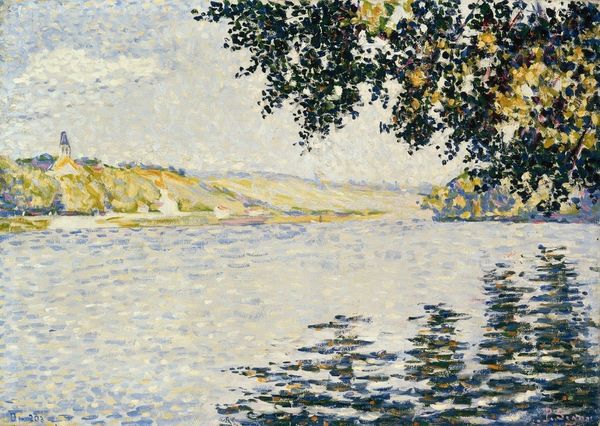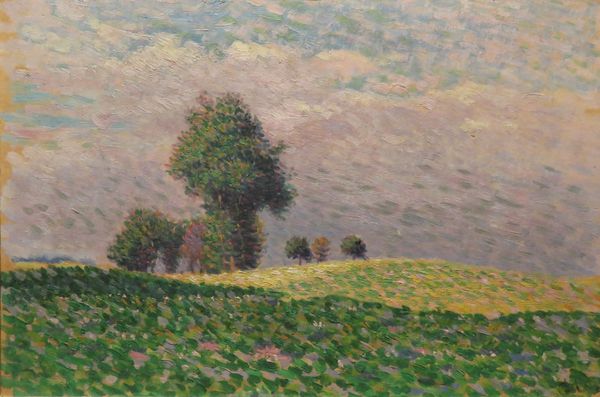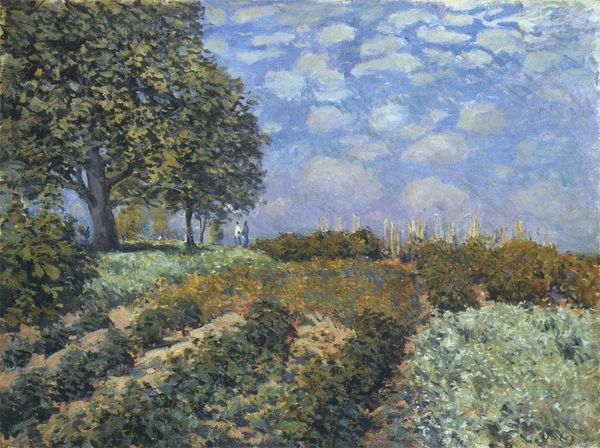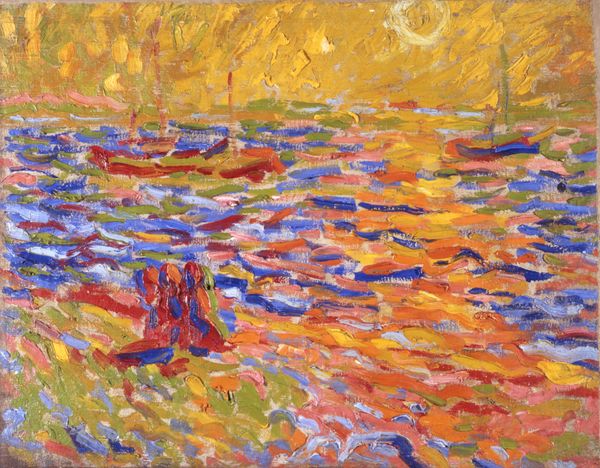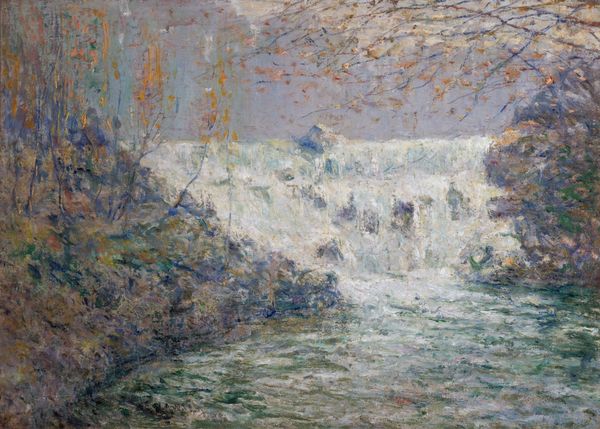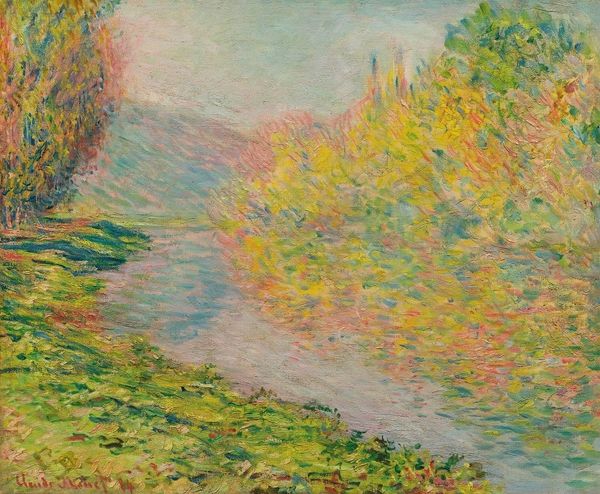
Copyright: Public Domain: Artvee
Curator: Before us is Christian Rohlfs' "Riverside Landscape," executed circa 1902 using oil paint. Its formal qualities present an intriguing case study in the transition from Impressionism to Expressionism. Editor: Oh, wow, it shimmers! Like heat rising off the water on a summer afternoon. It’s both hazy and vibrant somehow. Curator: Indeed. Observe how Rohlfs employs a pointillist technique, albeit one verging on abstraction. The brushstrokes, short and dab-like, coalesce into a representational scene—a river, its banks, distant hills—but simultaneously assert their presence as discrete units of color. Editor: It's like he's built the landscape out of tiny, energetic particles. And the red field on the right… it vibrates against the cool blues and greens of the river. Makes me think of memories blurring into feelings. Curator: The composition is essentially divided into horizontal strata. The river dominates the foreground, leading the eye towards the horizon. A close reading reveals how Rohlfs disrupts traditional perspective through color and texture. The river flattens out as it recedes, almost becoming a field itself. Editor: You're right. It’s as if he wants us to feel the painting as much as see it. That almost aggressive texture… I can practically feel the rough canvas beneath my fingers. Did Rohlfs experience this landscape in a way that pushed him beyond mere representation? Curator: Given the date, around 1902, and Rohlfs's subsequent embrace of Expressionism, it's plausible to interpret this work as a liminal piece. One can see hints of his move away from straightforward Impressionistic representation towards a more subjective, emotionally driven mode. Editor: A beautiful tension, I think. This landscape, so objectively "there", is clearly filtered through a highly individual, very expressive sensibility. A place and a feeling all at once. It sings. Curator: An astute observation. Indeed, it exemplifies the dynamic interplay between objective representation and subjective expression characteristic of early modernism. Editor: Well, it’s certainly given me a lot to feel. I will remember that haze.
Comments
No comments
Be the first to comment and join the conversation on the ultimate creative platform.
